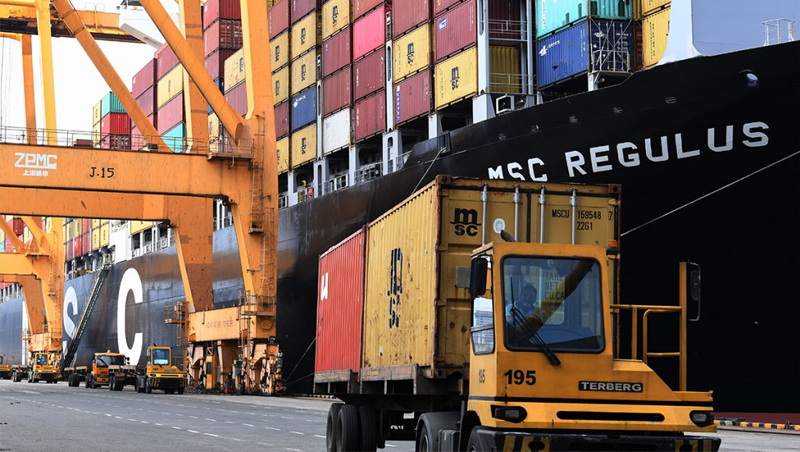The export industry which still accounts for an insignificant portion of the total export earnings of the country will be in distress further without a proper taxation policy for exports, opined exporters at the 25th Exporter Forum conducted by the Export Development Board (EDB) at its premises last week.
Around 86 percent of the exports contribute less than 4.4 percent of the total export revenue of the country.
However, the Government has set an ambitious target of increasing its contribution to the GDP by around 25 percent by 2030.
“The interest alone for the apparel sector would be over Rs. 2.6 billion annually at an interest rate of around 8-9 percent,” said an apparel exporter expressing concerns over the abolition of the SVAT (Simplified Value -Added Tax). As the time for the abolition of the SVAT system is fast ticking down to exporters including tea, rubber, gem and jewellery, ornamental fish, plants garments and a host of other segments voiced their concerns over the inaction of the authorities to mediate on the matter.
The apex body of the apparel industry, the Joint Apparel Association Forum (JAAF) has called upon the former and present regime to reconsider its decision taking into account the challenges the industry is faced with domestically and globally resulting in low export figures. The apex body for the apparel industry said the worst affected by the abolition of the SVAT system would be the SME segment which has been battling multiple challenges since the global pandemic outbreak in 2021.
“The withdrawal of SVAT without first coming up with a proper alternative tax system and an efficient refund mechanism will drastically disrupt cash flows for exporters particularly the apparel industry, which makes up close to half of the export portfolio,” JAAF Secretary General Yohan Lawrence said.
Exporters said the non continuity of the SVAT system will aggravate the financial position of the sector and erode export competiveness.
Although the Law requires refunds to be made within 45 days, exporters recalled that VAT refund dues go back to even as far as 2010 and that interest on these refunds has not been paid.
“We do see the need to increase revenue to the state coffers but there has to be some rationality,” an exporter said while urging the Minister of Industry and Entrepreneurship Development, Sunil Handunnetti who along with Deputy Minister of Finance and Planning, Dr. Harshana Suriyaaratchi , Deputy Minister of Lands and Irrigation.
Susil Ranasinghe and Deputy Minister of Digital Economy, Eranga Udesh Weeraratne were present at the forum.
The National Chamber of Exporters warned that removal of SVAT will force exporters to pay VAT upfront on purchases, which will strain their cash flow and tie up essential capital.
The NCE argues that SVAT should remain until an effective VAT refund mechanism is established.
The SVAT system was introduced to steady the cash flows of exporters by doing away with the delays in VAT refunds from the Inland Revenue Department. Minister Handunetti said a new duty structure for exports will be introduced soon that would make life easier for exporters to be competitive in the global market.
“Land shortage has been a persistent issue but that will be short-lived as we have identified lands in the North and the South to set up export development zones,” the Minister said adding that the manufacturing sector had not grown in the past due to market economic policies which had focused on profits only and not the development of the manufacturing sector that was adopted by subsequent regimes.
He said the NPP Government as outlined in its economic policy will create a vibrant manufacturing economy with products that meet global standards.




